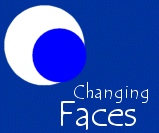
Final Report: Objectives
We set out the following objectives in the original proposal and all have been successfully met.
- To identify and describe key changes in policy and practice 1970-1999
We have assembled detailed timelines based on published sources and personal accounts. We have identified key moments within four broad policy phases and analysed the change forces at work and long-standing tensions in the field have been managed at different points.
- To bring together perspectives of key stakeholder groups to illuminate relationship between policy process and practice in the field
We have collected extensive data with which to analyse these relationships. We found that the “stakeholder groups” are in practice less distinct than we described them in the proposal – people frequently cross between the roles of practitioner and policy actor in the course of their careers; “policy actors” work at many different points within the system of education and training – national, regional and local. Where policy is absent or drifting it is the choices made in day to day practice which can influence change. We have collected many examples of student writing which could be analysed for the interplay between teaching practices and learners’ outcomes .
- to explain the high level of non-participation in ABE and the difference between self and external assessment of basic skill need using a theory of literacy and numeracy as socio-cultural practice.
We chose a carefully structured sample from adults in the NCDS and successfully carried out 78 semi-structured interviews with them in their homes. The interviews explored people’s experiences of learning over the thirty year period, including their awareness of publicity and opportunities for ALLN, attitudes to accreditation and to formal learning both in school and adult education, new technologies networks of support and intergenerational aspects of this.
- To create an archive recording a specific policy initiative spanning the last 30 years using a combination of qualitative and quantitative data sources
People we interviewed have been generous in donating materials including teaching and training materials, books of student writing, videos and photographs to policy documents, reports and statistics from local programmes. We obtained extra funding from the NRDC to help catalogue more than 50 boxes of material on-line and we have arranged for it to be housed in the Lancaster University library.